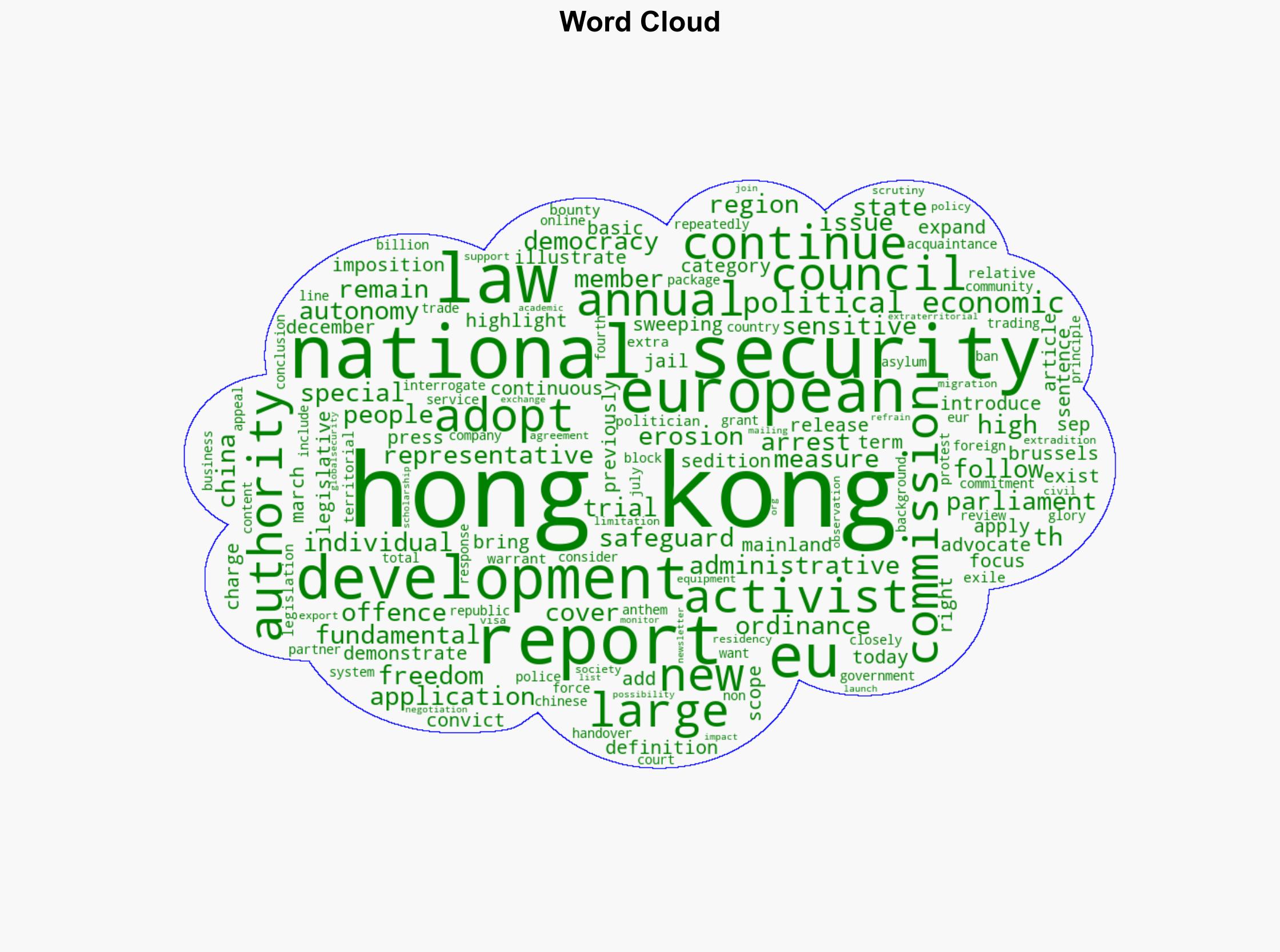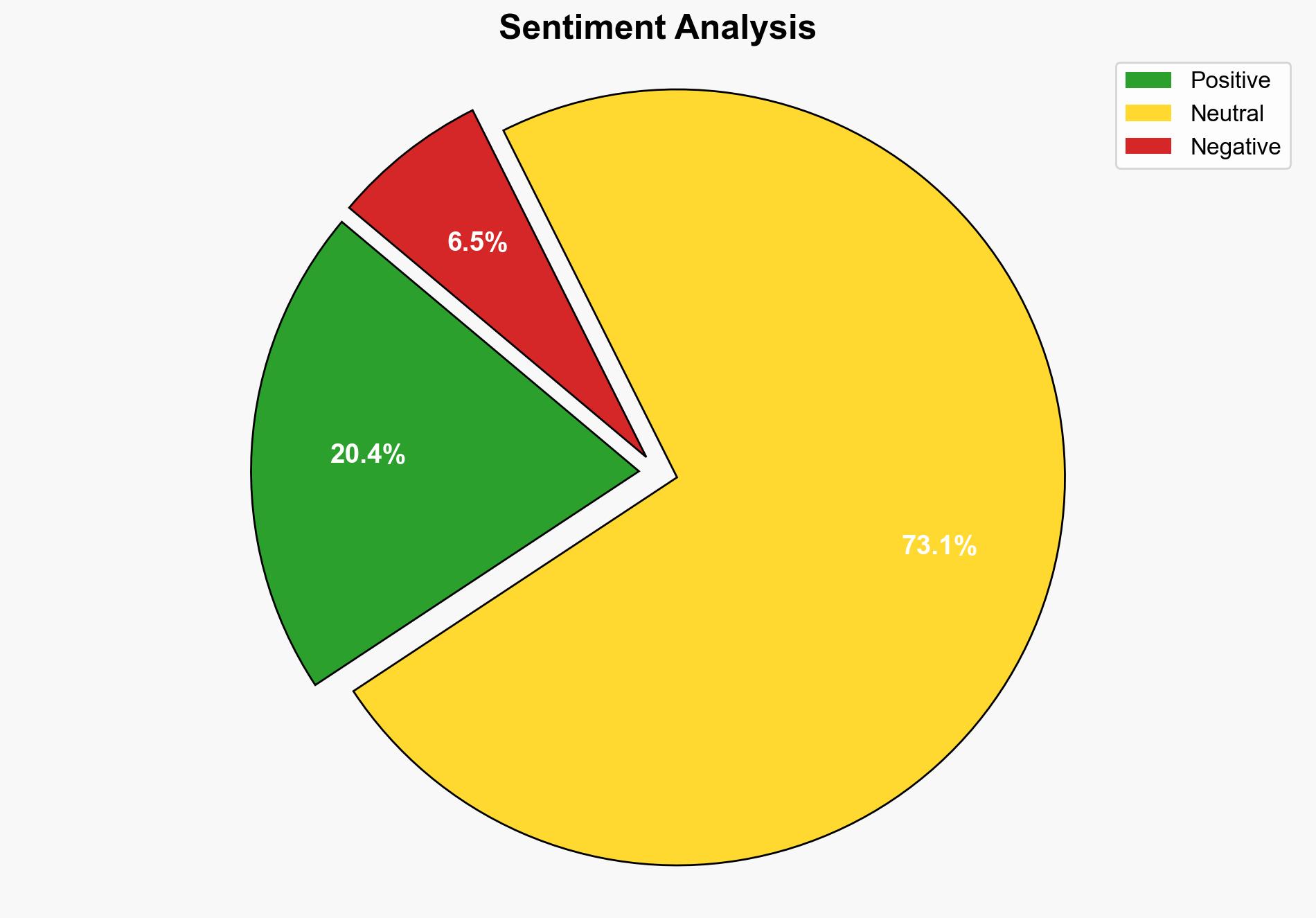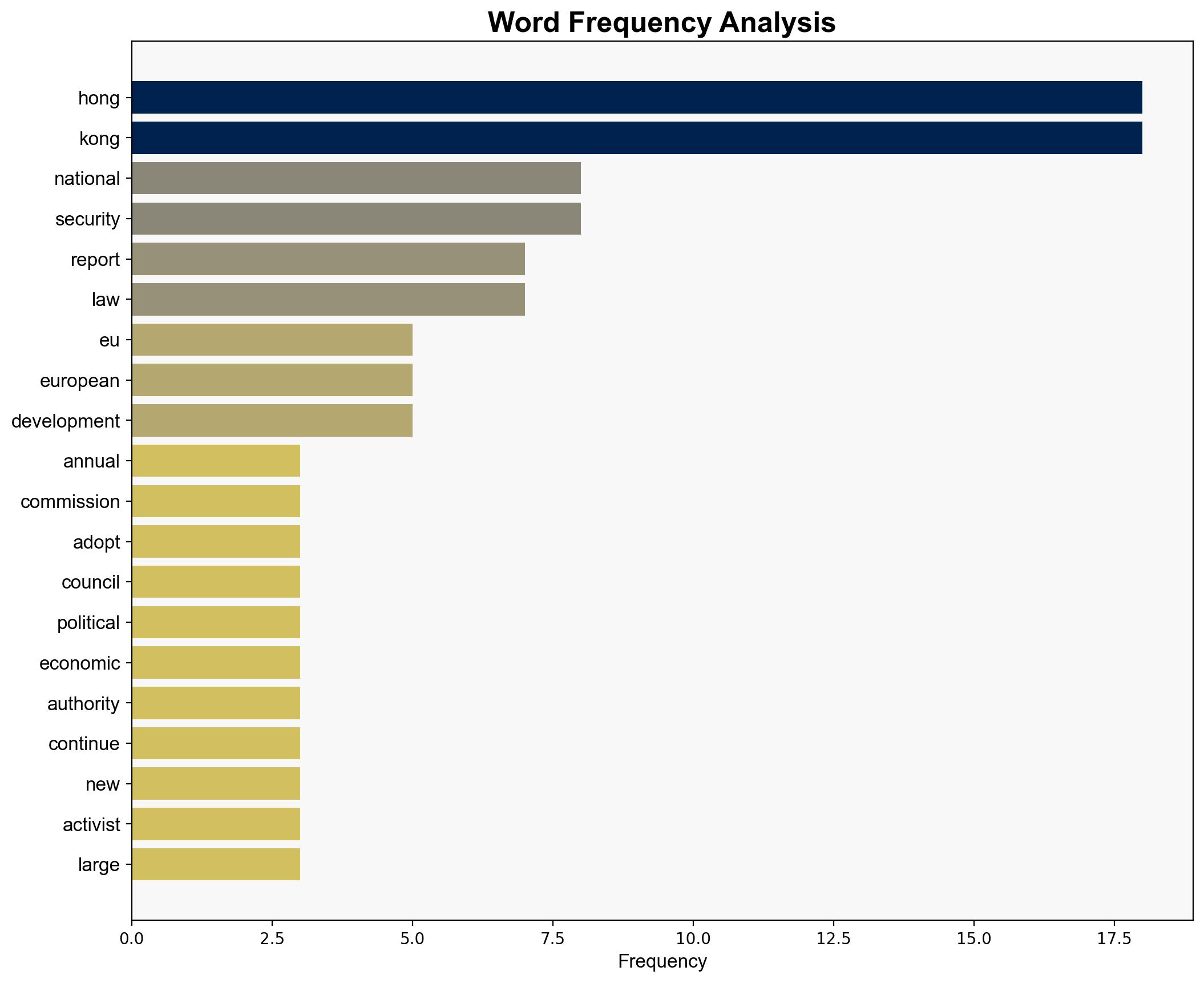Annual EU report illustrates further erosion of autonomy and fundamental freedoms in Hong Kong – Globalsecurity.org
Published on: 2025-09-12
Intelligence Report: Annual EU report illustrates further erosion of autonomy and fundamental freedoms in Hong Kong – Globalsecurity.org
1. BLUF (Bottom Line Up Front)
The European Union’s report highlights a significant erosion of autonomy and fundamental freedoms in Hong Kong, primarily due to the imposition and enforcement of the National Security Law. The hypothesis that the Hong Kong authorities are systematically aligning with Beijing’s broader national security agenda is better supported. Confidence level: High. Recommended action: The EU should enhance diplomatic engagement and consider targeted economic measures to support Hong Kong’s civil society and maintain pressure on China.
2. Competing Hypotheses
1. **Hypothesis A**: The Hong Kong authorities are independently prioritizing national security to stabilize the region, with actions not directly coordinated by Beijing.
2. **Hypothesis B**: The Hong Kong authorities are implementing policies directly influenced by Beijing, aiming to integrate Hong Kong more closely with mainland China’s legal and political frameworks.
Using the Analysis of Competing Hypotheses (ACH), Hypothesis B is better supported due to the introduction of laws that mirror mainland China’s legal definitions and the extraterritorial application of the National Security Law, which aligns with Beijing’s broader strategic objectives.
3. Key Assumptions and Red Flags
– **Assumptions**: It is assumed that the legislative changes in Hong Kong are primarily driven by national security concerns rather than economic or social stability.
– **Red Flags**: The absence of significant opposition from major international actors could embolden further restrictive measures. The report lacks detailed insights into the internal decision-making processes of Hong Kong authorities.
– **Blind Spots**: Potential covert support or influence from Beijing in Hong Kong’s legislative processes is not explicitly documented.
4. Implications and Strategic Risks
The erosion of autonomy in Hong Kong could lead to increased regional instability, affecting economic relations and potentially escalating tensions between China and Western countries. The extraterritorial application of the National Security Law poses risks to international businesses and expatriates. There is a potential for increased cyber and information warfare tactics as part of broader geopolitical strategies.
5. Recommendations and Outlook
- Enhance diplomatic efforts to engage with Hong Kong and Chinese authorities, emphasizing the importance of upholding international agreements and human rights.
- Consider economic measures, such as targeted sanctions or trade adjustments, to pressure compliance with international norms.
- Support civil society in Hong Kong through funding and international platforms to amplify their voices.
- Scenario Projections:
- Best Case: Hong Kong authorities moderate their approach, restoring some freedoms.
- Worst Case: Further integration with mainland China leads to complete erosion of autonomy.
- Most Likely: Continued gradual erosion with intermittent international pushback.
6. Key Individuals and Entities
Specific individuals were not mentioned in the source text. Entities include the European Commission, Hong Kong Legislative Council, and the broader EU business community in Hong Kong.
7. Thematic Tags
national security threats, cybersecurity, counter-terrorism, regional focus





